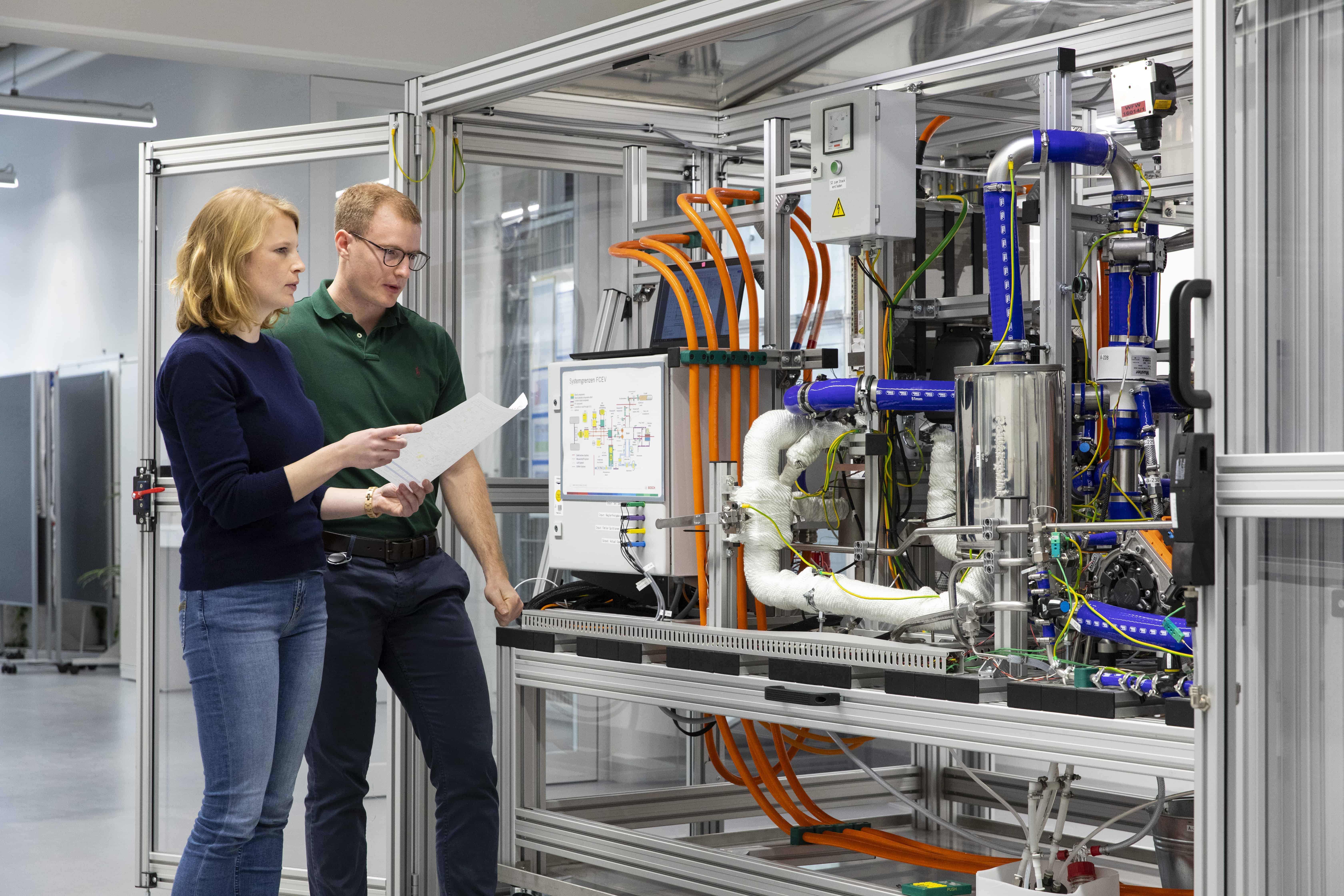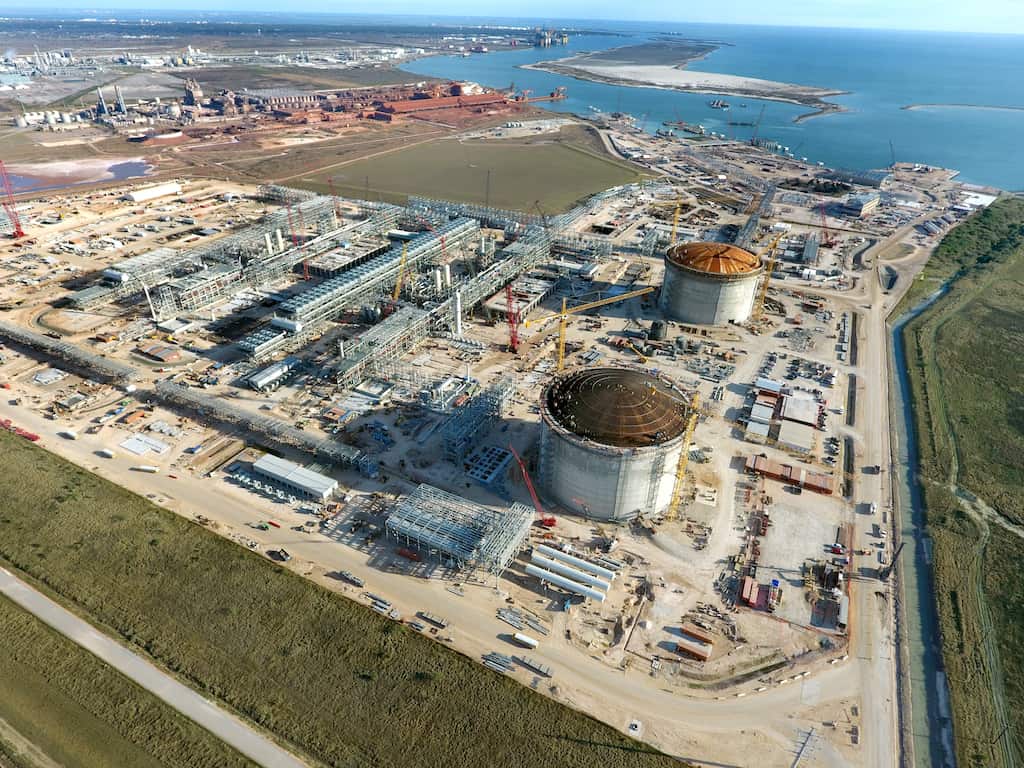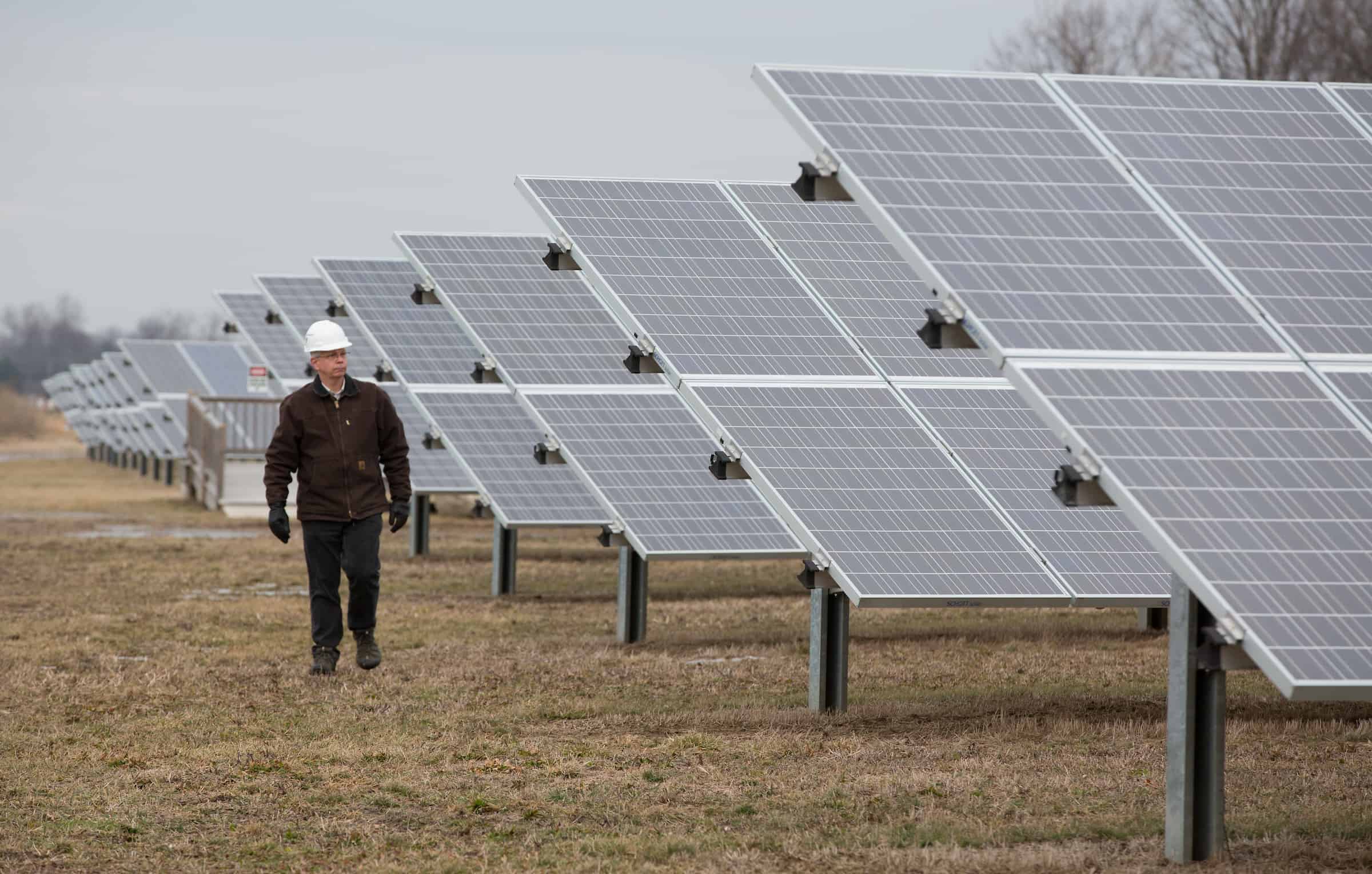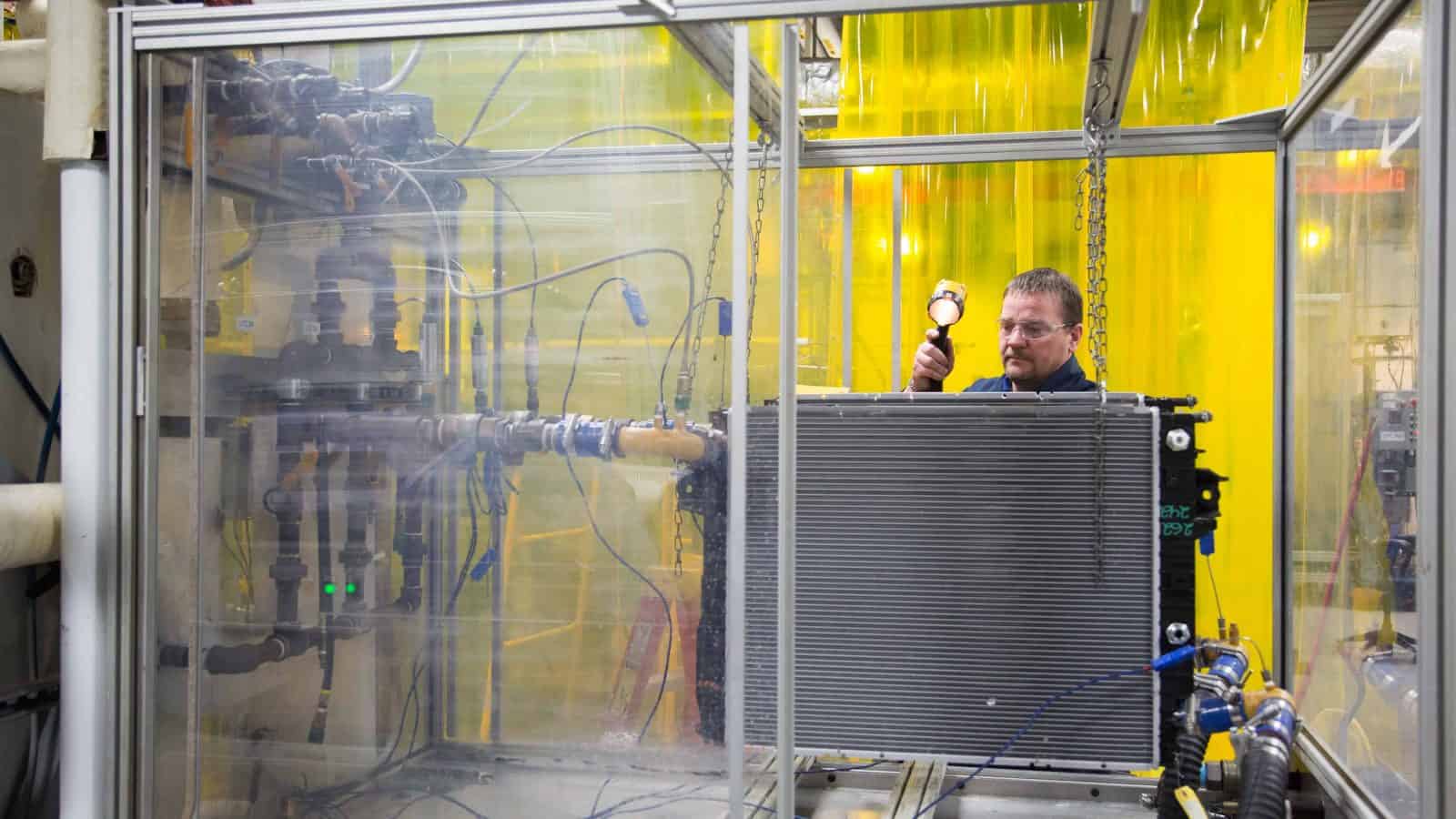Climate R&D Bill Would Make Manufacturing More Competitive

A House of Representatives committee recently held a hearing on a bill designed to drive breakthrough innovations to tackle climate change—a priority that has the strong support of the National Association of Manufacturers and manufacturing businesses across the country.
The Clean Industrial Technology Act (CITA) would set up a Transformational Industrial Technology Program at the U.S. Department of Energy, and would drive new technologies aimed at increasing the technological and economic competitiveness of manufacturing in the United States. The program would also find pathways to net-zero greenhouse gas emissions and create a technical assistance program to help local communities and states evaluate and incentivize the adoption of technologies that reduce industrial greenhouse gases. The legislative hearing on the CITA was held by the House of Representatives Committee on Science, Space, and Technology. In the Senate, the NAM has been working closely with Sen. Sheldon Whitehouse (D-RI) on similar legislation.
“Manufacturers have always been about solutions,” said Rachel Jones, Senior Director of Energy and Resources Policy at the NAM. “We need real-world technologies to address our global climate problem, and legislation like the CITA provides a common sense opportunity to move our efforts forward. This bill takes a clear-eyed look at the unique challenges that different energy-intensive industries face as we all work toward ensuring a safer and more prosperous future.”
Manufacturers across the country are deeply involved in sustainability programs, leading the way for other industries in protecting our environment. Most manufacturing companies have already pioneered new technologies and implemented meaningful programs to reduce greenhouse gas emissions. With more than 12 million men and women employed by the industry in every state in the country, manufacturing businesses have a unique perspective on the challenges of our shared path forward and have consistently worked with Congress to promote bills like the CITA.
“Providing incentives for U.S. businesses, schools and laboratories to bring game-changing technologies into the commercial sector isn’t just good policy; it’s common sense,” said Jones. “Cooperative partnerships between industry, government and academia benefit all three sectors and the country as a whole.”
Manufacturers contributed 18 percent more value to the American economy over the past decade while reducing the carbon footprint of their products by 21 percent—demonstrating that productivity and sustainability are compatible with each other—and keeping the industry’s promise to promote sustainable solutions.
“Manufacturers are committed to reducing greenhouse gases and addressing climate change while preserving our global competitiveness,” said Jones. “This legislation is a great example of how we are working with policymakers to turn aspirations into reality in order to protect our environment and improve our world. Manufacturers applaud the House Science Committee and Sen. Whitehouse for their leadership.”
Liquified Natural Gas Boom Impacts U.S. Manufacturers
U.S. Natural Gas Production Continues To Break Records

Last month, the European Union announced that U.S. exports of liquified natural gas (LNG) to Europe had increased nearly 300% since 2016. This news came on the heels of a series of executive orders from President Trump designed to speed up energy infrastructure projects that enable manufacturers to carry natural gas to market.
Rachel Jones, the National Association of Manufacturers’ senior director of energy and resources policy, helps us break down what it all means.
Why is the U.S. experiencing a natural gas boom?
North America has more shale gas than any other place in the world. Technology is the other huge driver. The combination of horizontal drilling and hydraulic fracturing technologies is unlocking vast natural gas resources and changing the face of modern manufacturing in America.
This boom is set to keep growing. According to the Energy Information Administration, U.S. shale gas production is projected to more than double again over the next 25 years.
What is “liquified” natural gas (LNG)?
It’s really just natural gas that has been refrigerated until it turns into a liquid. When it comes out of the ground, natural gas is actually very thin and light. To make it easier to move around the world, it is turned into a liquid.
Why are investments in LNG export infrastructure so important for the U.S. manufacturing industry?
LNG terminals are massive infrastructure projects that create tens of thousands of jobs.
Golden Pass is a $10 billion investment in the Gulf Coast that will create jobs across the country for manufacturers who make compressors, heat exchangers, storage tanks, pipes, valves and other components of these state-of-the-art infrastructure projects. Golden Pass alone is projected to create 45,000 direct and indirect jobs during construction, plus several thousand more during operation. Cheniere’s Sabine Pass and Corpus Christi projects together represent an investment of approximately $30 billion in U.S. energy infrastructure. And the Driftwood project is poised to invest another $30 billion, creating nearly 50,000 direct and indirect jobs in at least 18 states.
How do President Trump’s recent executive orders promote LNG infrastructure development?
Manufacturers in the United States are ahead of their global competitors in the race to build the infrastructure needed to export LNG; however, an unnecessarily protracted regulatory process could cause a major disadvantage for these exporters.
In a big win for U.S. manufacturing workers, President Trump signed two long-anticipated executive orders intended to cut red tape and speed up the permitting process for energy infrastructure projects. These orders will promote badly-needed development of infrastructure to meet U.S. energy demand, create and support jobs for U.S. manufacturing workers, and provide reliable and affordable energy to U.S. consumers.
How does natural gas help manufacturers achieve sustainability goals?
Climate Change is one of the biggest global challenges we face. Manufacturers understand this and are taking real action to protect our environment; natural gas is part of that story.
Modern natural-gas plants that replace aging power plants can mean an 80% reduction in carbon emissions. Further, because solar and wind can produce varying amounts of energy, having natural gas available on demand actually enables us to further invest in renewable resources.
Manufacturers Take Action on Climate

With a recent three-year United Nations environmental report spearheaded by the Intergovernmental Science-Policy Platform on Biodiversity and Ecosystem Services (IPBES) highlighting dire warnings about human impact on the planet, leaders in the United States are under renewed pressure to find solutions that work. In communities across the country, manufacturers are taking a stand for sustainability – and demanding action against climate change.
While manufacturers have created their own policies to reduce pollution and increase sustainability, manufacturing leaders are increasingly pushing for action. Although policymakers in Washington have yet to settle on a unified approach, the manufacturing industry is making clear that the existing state of affairs is unsustainable.
“Manufacturers hope we can all agree that the current policy – a disjointed system of federal and state regulations that take decades to install and often fail – is not the answer,” said Ross Eisenberg, Vice President of Energy and Resources Policy at the National Association of Manufacturers. “A piecemeal regulatory approach just isn’t going to cut it.”
While proposals like the Green New Deal have garnered significant press coverage without gaining a single vote in Congress, manufacturing leaders are seeking opportunities for consensus on climate legislation by focusing on actionable solutions. These proposals include scaling up the adoption of energy- and water-efficient products and technologies, prioritizing innovation and creating pathways for the deployment of new technologies like carbon capture, utilization and storage. It also involves working collaboratively by creating public-private partnerships between government and manufacturers to help them further decarbonize. Finally, manufacturers are encouraging the United States to reengage with the international community in order to reduce greenhouse gas emissions together, rather than in isolation.
Manufacturers have unique qualifications to speak about this issue, as most have implemented meaningful programs to reduce greenhouse gas emissions, pioneer new strategies and technologies to reduce greenhouse gas emissions and set aggressive emissions reduction targets.
These actions have had a significant effect. Over the past decade, the manufacturing industry has reduced its greenhouse gas emissions by 10 percent while the sector’s value to the economy has increased 19 percent. It’s outpacing competitors and demonstrating that it is possible to reduce emissions without falling behind in a global market.
“Our barometer is that manufacturers in America must stay competitive in the global economy, and that requires realistic, practical policies that we can implement while we continue to do the things that make the manufacturing sector strong,” said Eisenberg. “Speaking for the 12.8 million men and women who make things in America, we’re ready.”
NAM And API Welcome Trump Energy Executive Orders
Washington, D.C. – The National Association of Manufacturers and the American Petroleum Institute released the following statement regarding new executive orders that will help relieve the backlog of pipeline projects:
The President’s executive action to accelerate the energy infrastructure permitting process will boost job creation, energy security, the growth of U.S. exports and the expansion of manufacturing in America, said NAM President and CEO Jay Timmons. For years, manufacturers have advocated for a modernized permitting process, and this administration has listened, providing much needed clarity to often confusing or unpredictable rules and regulations. With these new tools in hand, manufacturers are not only empowered to make new investments in our people and our communities but also to keep our promise to deliver responsible environmental stewardship.
Pipelines are the safest, most environmentally sound way to transport natural gas and oil, and API supports a robust permitting process for moving pipeline projects forward, said API President and CEO Mike Sommers. While some state lawmakers and governors have abused the Clean Water Act to cause permitting delays, these executive orders will strengthen the Clean Water Act by requiring federal agencies to make timely permitting decisions in compliance with the law. We applaud the administration for their commitment to building America’s pipeline infrastructure, helping to deliver the energy that working families and businesses rely on each and every day.
The NAM has advocated for measures to accelerate the permitting process for new energy infrastructure for several years and has actively called on the Trump administration to improve the way federal and state agencies authorize these projects. In 2016, the NAM and IHS Economics released a study highlighting the economic benefits of pipeline development to the U.S. manufacturing sector.
-NAM-
The National Association of Manufacturers (NAM) is the largest manufacturing association in the United States, representing small and large manufacturers in every industrial sector and in all 50 states. Manufacturing employs more than 12 million men and women, contributes $2.25 trillion to the U.S. economy annually, has the largest economic impact of any major sector and accounts for more than three-quarters of private-sector research and development. The NAM is the powerful voice of the manufacturing community and the leading advocate for a policy agenda that helps manufacturers compete in the global economy and create jobs across the United States. For more information about the Manufacturers or to follow us on Shopfloor, Twitter and Facebook, please visit www.nam.org.
Timmons Delivers 2019 NAM State of Manufacturing Address in Houston
Keynote Speech Emphasized the Next Frontier of Manufacturing and Underscored Need to Fill Significant Manufacturing Skills Gap
Washington, D.C. – National Association of Manufacturers President and CEO Jay Timmons delivered the fifth-annual NAM State of Manufacturing 2019 Address today at Lone Star College – North Harris in Houston, Texas. Timmons addressed Lone Star students, veterans, business leaders and local manufacturers and highlighted the industry’s optimism for the future, manufacturing’s high-tech, innovative nature and the urgent need to recruit the next generation of manufacturers. He also touched on top policy priorities for manufacturers.
Manufacturing is an engine of job creation. It is the source of America’s strength. And what is the state of modern manufacturing in America? Today, manufacturing in America is on the rise. Tax reform was the rocket fuel it was promised to be, and it’s helping us to climb higher and faster than almost anyone thought possible in this century, said Timmons.
Today, people in manufacturing are using technologies that most Americans couldn’t have imagined a few years ago—artificial intelligence, augmented reality. We don’t just have robots; we have ‘co-bots,’ machines that work in tandem with you. And you have manufacturers trying to figure out how quantum computing could revolutionize logistics.
Timmons highlighted the strength of manufacturing in Texas and the job opportunities available to students. He also emphasized the policy solutions that manufacturers want to see from lawmakers—with a focus on a U.S.–China trade deal, approval of the U.S.–Mexico–Canada Agreement, infrastructure investment and meaningful immigration reform. Timmons touted “A Way Forward,” the NAM’s recently released plan for a comprehensive, legislative immigration solution.
To read the full the address, click here.
Technology has transformed our industry. It’s created incredible opportunities. And as we journey further into this new frontier, we want you to be a part of it, Timmons concluded.
Following the address, Timmons toured Lone Star College’s energy, manufacturing and construction workforce program labs, where he met students and talked with them about their trade skill education.
Carolyn Lee, executive director of The Manufacturing Institute, the NAM’s education and workforce partner, continued the tour in Houston at the Microsoft Technology Center with a Heroes MAKE America class from Fort Hood. Heroes MAKE America is The Manufacturing Institute’s career skills program that aims to support transitioning service members with in-demand qualifications and industry-specific certifications needed for today’s manufacturing workforce.
One of our missions here at Lone Star College-North Harris to ensure our students are prepared for the workforce and the promising opportunities in the manufacturing sector, said Dr. Gerald Fernandez Napoles, president of Lone Star College – North Harris. We’re proud to welcome the National Association of Manufacturers and to help tell the story of the rewarding opportunities in manufacturing. Our energy, manufacturing and construction workforce programs are empowering Texans every day to build meaningful careers.
Lee and the Heroes class also toured BP’s Upstream Learning Center with American Petroleum Institute President and CEO Mike Sommers, where they spoke to BP employees about the NAM’s Heroes MAKE America program. Lee ended the day at Bimbo Bakeries for a facility tour.
Manufacturing is vital to the strong Texas economy, said Jeff Moseley, president and CEO of the Texas Association of Business. Today’s event captured the diversity of Texas manufacturers and the ways our technology is transforming the industry and the industry is transforming lives for the better. Modern manufacturing creates good jobs, drives investment and exports and contributes enormously to our local economies. In fact, the Texas manufacturing industry employs around 896,000 Texans and contributes about $226 billion to our state economy. We need to ensure this industry has the tools, and workforce, to continue leading Texas forward.
For the past five years, the annual NAM State of Manufacturing Tour has focused the nation’s attention on the industry that is the backbone of the American economy, highlighting the more than 12.8 million men and women who are building our future and solving tomorrow’s challenges today. The tour has traveled the country, bringing policy discussions and conversations about the future of work in the manufacturing industry to shop floors, schools, economic clubs, television studios, the White House and more.
This year’s tour will spotlight the industry’s next frontier, while also focusing on manufacturing’s well-paying careers, the industry’s diverse workforce and the policy solutions that are essential for manufacturing’s continued growth.
Members of the media interested in covering the tour should contact [email protected]. To learn more about the NAM State of Manufacturing Tour 2019, click here.
-NAM-
The National Association of Manufacturers (NAM) is the largest manufacturing association in the United States, representing small and large manufacturers in every industrial sector and in all 50 states. Manufacturing employs more than 12 million men and women, contributes $2.25 trillion to the U.S. economy annually, has the largest economic impact of any major sector and accounts for more than three-quarters of private-sector research and development. The NAM is the powerful voice of the manufacturing community and the leading advocate for a policy agenda that helps manufacturers compete in the global economy and create jobs across the United States. For more information about the Manufacturers or to follow us on Shopfloor, Twitter and Facebook, please visit www.nam.org.
NAM Welcomes Nomination of Andrew Wheeler to Lead EPA
Washington, D.C. – National Association of Manufacturers (NAM) President and CEO Jay Timmons released the following statement on Andrew Wheeler’s nomination to become EPA Administrator:
President Trump has made an outstanding choice for EPA Administrator. Andy’s extensive environmental and natural resource policy background makes him a perfect leader to assume this role in a permanent capacity, said Timmons. He has provided a steady hand as Acting Administrator and has led the Trump Administration’s efforts to restore balance to the regulatory process at the EPA, so that manufacturers can continue innovating and keeping our promise to advancing efforts to protect our air and water.
-NAM-
The National Association of Manufacturers (NAM) is the largest manufacturing association in the United States, representing small and large manufacturers in every industrial sector and in all 50 states. Manufacturing employs more than 12 million men and women, contributes $2.25 trillion to the U.S. economy annually, has the largest economic impact of any major sector and accounts for more than three-quarters of private-sector research and development. The NAM is the powerful voice of the manufacturing community and the leading advocate for a policy agenda that helps manufacturers compete in the global economy and create jobs across the United States. For more information about the Manufacturers or to follow us on Shopfloor, Twitter and Facebook, please visit www.nam.org.
NAM Statement on Dismissal of Lawsuits Targeting Manufacturers
Timmons Praises Calif. Judge’s Dismissal of Baseless Climate Lawsuit
Washington, D.C. – National Association of Manufacturers (NAM) President and CEO Jay Timmons released the following statement responding to U.S. District Judge William Alsup’s dismissal of the climate lawsuits filed by San Francisco and Oakland targeting manufacturers:
From the moment these baseless lawsuits were filed, we have argued that the courtroom was not the proper venue to address this global challenge, said Timmons. Judge Alsup agreed. Other municipalities around the country who have filed similar lawsuits should take note as those complaints are likely to end the same way. New York City, Boulder, and the other California municipalities should withdraw their complaints and follow the lead of others that are focused on meaningful solutions.
The NAM has led the business community’s response to the wave frivolous public nuisance lawsuits targeting manufacturers by forming the Manufacturers’ Accountability Project (MAP), headed by Executive Director Lindsey de la Torre. A project of the NAM’s Manufacturers’ Center for Legal Action (MCLA), MAP has fought to set the record straight and highlight the concerted, coordinated campaign being waged by plaintiffs’ lawyers, public officials, deep-pocketed foundations and other activists who have sought to undermine and weaken manufacturers in the United States. More information can be found at mfgaccountabilityproject.org.
-NAM-
The National Association of Manufacturers (NAM) is the largest manufacturing association in the United States, representing small and large manufacturers in every industrial sector and in all 50 states. Manufacturing employs more than 12 million men and women, contributes $2.25 trillion to the U.S. economy annually, has the largest economic impact of any major sector and accounts for more than three-quarters of private-sector research and development. The NAM is the powerful voice of the manufacturing community and the leading advocate for a policy agenda that helps manufacturers compete in the global economy and create jobs across the United States. For more information about the Manufacturers or to follow us on Shopfloor, Twitter and Facebook, please visit www.nam.org.
NAM’s Timmons Discusses Tariffs on Fox Business
Timmons Praises Calif. Judge’s Dismissal of Baseless Climate Lawsuit
Washington, D.C. – National Association of Manufacturers (NAM) President and CEO Jay Timmons released the following statement responding to U.S. District Judge William Alsup’s dismissal of the climate lawsuits filed by San Francisco and Oakland targeting manufacturers:
From the moment these baseless lawsuits were filed, we have argued that the courtroom was not the proper venue to address this global challenge, said Timmons. Judge Alsup agreed. Other municipalities around the country who have filed similar lawsuits should take note as those complaints are likely to end the same way. New York City, Boulder, and the other California municipalities should withdraw their complaints and follow the lead of others that are focused on meaningful solutions.
The NAM has led the business community’s response to the wave frivolous public nuisance lawsuits targeting manufacturers by forming the Manufacturers’ Accountability Project (MAP), headed by Executive Director Lindsey de la Torre. A project of the NAM’s Manufacturers’ Center for Legal Action (MCLA), MAP has fought to set the record straight and highlight the concerted, coordinated campaign being waged by plaintiffs’ lawyers, public officials, deep-pocketed foundations and other activists who have sought to undermine and weaken manufacturers in the United States. More information can be found at mfgaccountabilityproject.org.
-NAM-
The National Association of Manufacturers (NAM) is the largest manufacturing association in the United States, representing small and large manufacturers in every industrial sector and in all 50 states. Manufacturing employs more than 12 million men and women, contributes $2.25 trillion to the U.S. economy annually, has the largest economic impact of any major sector and accounts for more than three-quarters of private-sector research and development. The NAM is the powerful voice of the manufacturing community and the leading advocate for a policy agenda that helps manufacturers compete in the global economy and create jobs across the United States. For more information about the Manufacturers or to follow us on Shopfloor, Twitter and Facebook, please visit www.nam.org.
NAM Files Amicus Brief in Millennium Bulk Terminals Case
Brief Supports Proposed Coal Terminal Against Stonewalling from Gov. Inslee’s Administration
Washington, D.C. – The National Association of Manufacturers’ (NAM) has filed an amicus brief in an important case before the U.S. District Court of the Western District of Washington. The brief, led by the NAM’s Manufacturers’ Center for Legal Action, is in support of Millennium Bulk Terminals’ lawsuit against Gov. Jay Inslee’s (D-WA) administration for blocking the company’s proposed coal terminal. NAM Senior Vice President, General Counsel and Corporate Secretary Linda Kelly released the following statement:
Manufacturers need smart energy and trade policies to keep growing and creating jobs in the United States and remain globally competitive. Unfortunately, some states have made it nearly impossible to get a permit to do just about anything, and infrastructure projects like coal export terminals have been subjected to politically-motivated delays. At seemingly every point in the decision-making process for the Millennium Bulk Terminals project, Washington state regulators have distorted the law to achieve their political goal of killing this job-creating project. Washington state’s reckless disregard for the rule of law directly impedes interstate commerce and the free trade of goods and services, which will have serious consequences for manufacturing workers—and sets a dangerous precedent for desperately needed infrastructure projects across the country.
-NAM-
The National Association of Manufacturers (NAM) is the largest manufacturing association in the United States, representing small and large manufacturers in every industrial sector and in all 50 states. Manufacturing employs more than 12 million men and women, contributes $2.25 trillion to the U.S. economy annually, has the largest economic impact of any major sector and accounts for more than three-quarters of private-sector research and development. The NAM is the powerful voice of the manufacturing community and the leading advocate for a policy agenda that helps manufacturers compete in the global economy and create jobs across the United States. For more information about the Manufacturers or to follow us on Shopfloor, Twitter and Facebook, please visit www.nam.org.
